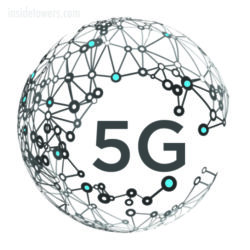Over the past year, many conspiracy theories have surfaced related to 5G – some claiming it exacerbated the COVID-19 virus by weakening the immune system and others worrying it causes cancer. According to Business Today, a new report by Deloitte titled Technology, Media, and Telecommunications Predictions 2021, says that the fears around 5G and radiation emissions are grossly overblown.
“We predict that in 2021, it is very unlikely that the radiation from 5G mobile networks and 5G phones will affect the health of any single individual, be it a 5G user, a user of any other generation of mobile phones, or any individual in the vicinity of a mobile network but not actually using a mobile device,” says the report.
According to the report, 10-20 percent of adults believe 5G poses health risks, despite extensive scientific evidence proving the opposite. Earlier generations of technologies (2G, 3G, 4G) plus WiFi and Bluetooth have also come under criticism due to EMF transmissions, reported Business Today.
“5G does generate radiation, but at very safe levels, and none of it is radioactive radiation. 5G base stations and phones, and the frequency ranges within which 5G operates, are very likely to be operating well within safe parameters in 2021 and throughout 5G’s lifetime, which may extend to two decades,” the report states. 5G also uses less power than 3G or 4G, so it emits less energy.
Deloitte’s report addresses the amount of power anticipated from mobile technology this year, which can be as low as 0.001 watts, peaking at 1 watt, depending on the device’s age. “By comparison, the power transmitted by CB [citizens band] radios, which have been in use for decades, reaches up to four watts…An individual 100 meters away from a 5G macrocell antenna located at 30 meters’ height would absorb less than one microwatt (one-thousandth of a watt) of power,” the report points out.





Reader Interactions